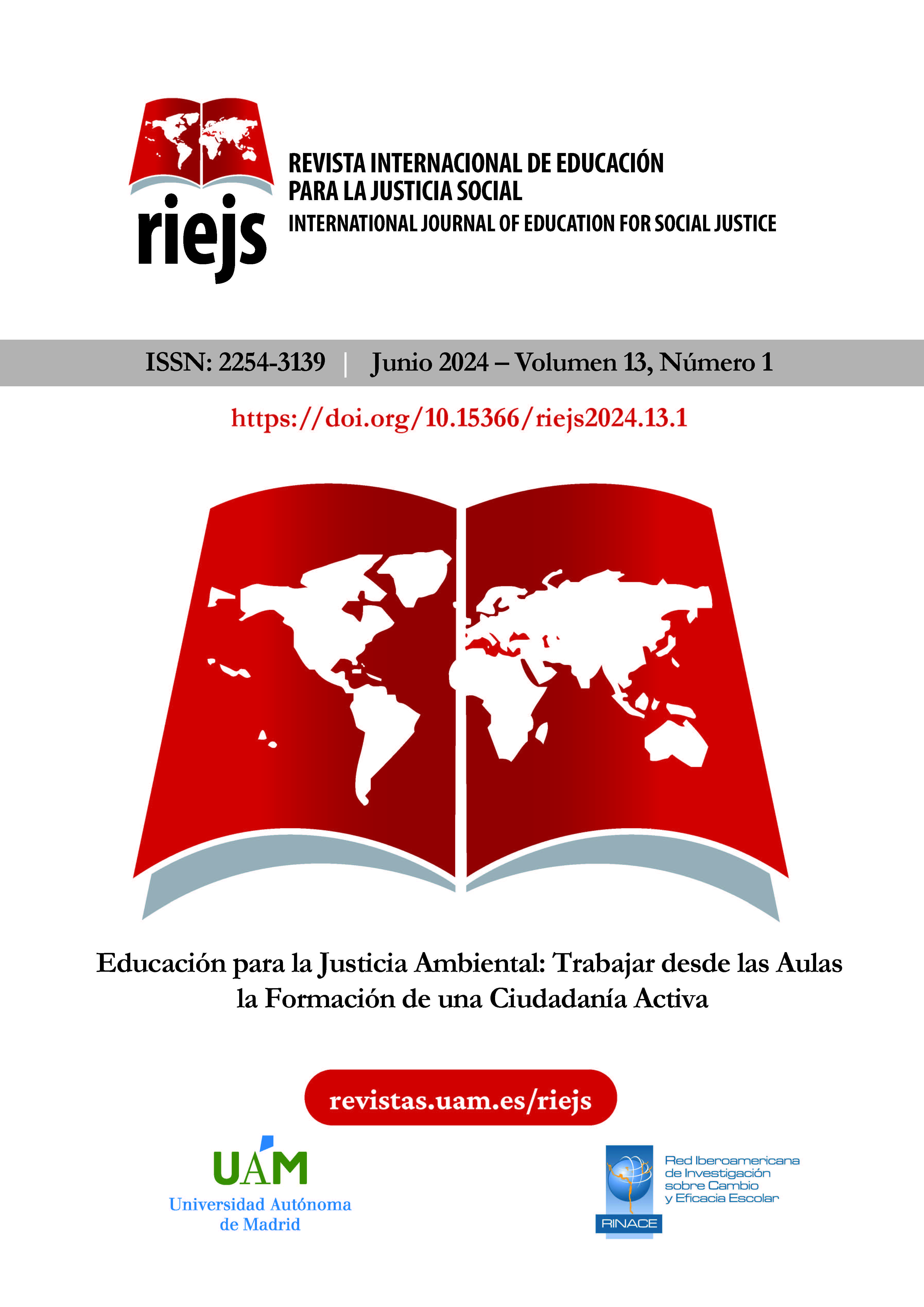Green, Yellow and Red Lights when Innovating Science Teaching
Keywords:
Natural science , Professional development, Reflective teaching, Innovation, Participation
This work is licensed under a Creative Commons Attribution-NonCommercial-NoDerivatives 4.0 International License.
Abstract
Strengthening scientific education is crucial for shaping competent citizens committed to sustainable development. This involves promoting innovative teaching practices that foster the development of scientific competencies and active student engagement. However, their enactment can be challenging. We conducted a thematic content analysis of the written reflections that 49 science teachers who participate in a graduate Diploma in Education shared after conducting an innovative micro-class (i.e. including inquiry, problem-solving, metacognitive activities, or ICTs). We characterized the aspects they identified as strengths, aspects that demand further analysis and opportunities for improvement in their teaching practices, following the “Green, yellow and red Lights” visible thinking routine. As “green lights”, teachers highlighted the positive effects that their new practices had on student participation and learning. As “yellow lights”, they identified their difficulties to accurately estimate the time participatory activities require, and a tension between adhering to their plans and maintaining authentic dialogues with students. As “red lights”, they pointed out the lack of foresight regarding necessary resources and appropriate work dynamics. Our results highlight the necessity for practicing teachers to implement innovations and reflect on their effects and challenges as a key element for their professional development
Downloads
References
Aduriz Bravo, A. (2020). Innovative strategies for science teaching. Nova Science Publishers.
Anijovich, R., Cappelletti, G., Mora, S. y Sabelli, M. (2009). Transitar la formación pedagógica. Dispositivos y estrategias. Paidós.
Bak?r, S. (2014). The effect of microteaching on the teaching skills of pre-service science teachers. Journal of Baltic Science Education, 13(6), 789-801.
Bandura, A. (1977). Self-efficacy: Toward a unifying theory of behavioural change. Psychological Review, 84, 191-215.
Bernabé, D. (2021). Ya estábamos al final de algo. El origen de la crisis de la posmodernidad. Bruguera.
Charmaz, K. y Thornberg, R. (2021). The pursuit of quality in grounded theory. Qualitative Research in Psychology, 18(3), 305-327. https://doi.org/10.1080/14780887.2020.1780357
Chen, L. y Xiao, S. (2021). Perceptions, challenges and coping strategies of science teachers in teaching socioscientific issues: A systematic review. Educational Research Review, 32, 100377. https://doi.org/10.1016/j.edurev.2020.100377
Colonia, S. C., Fuster-Guillén, D., Castro, A. S., Leyva, H. W. M. y Ramírez, T. V. C. (2021). Scientific literacy: A key part of school contexts. Revista Tempos e Espaços em Educação, 14(33), e15611. https://doi.org/10.20952/revtee.v14i33.15611
Cols, E., Amantea, A., Basabe, L. y Fairstein, G. (2012). La definición de propósitos y contenidos curriculares para la enseñanza de las ciencias naturales: Tendencias actuales y perspectivas. Praxis Educativa, 10, 50-67.
Costa, S. L. R., Broietti, F. C. D. y Passos, M. M. (2020). The levels and nature of pre-service chemistry teachers' reflections in a public university in southern Brazil. Problems of Education in the 21st Century, 78(2), 147-162.
Darling-Hammond, L., Hyler, M. E. y Gardner, M. (2017). Effective teacher professional development. Learning Policy Institute.
Davis, K. S. (2003). Change is hard: What science teachers are telling us about reform and teacher learning of innovative practices. Science Education, 87(1), 3-30.
Fabbi, M.V., Lescano, M. y Palacios, A. (2013). Una aproximación a la microclase como dispositivo para la formación de profesores. En VVAA. (Coords.), Memorias del V Congreso Internacional de Investigación y Práctica Profesional en Psicología (pp. 142-144). Universidad de Buenos Aires.
Fullan, M. (2007). The new meaning of educational change. Routledge.
Furman, M. (2020). Aprender ciencias en las escuelas primarias de América Latina. UNESCO.
Gil Flores, J. (2016). Variables asociadas a la autoeficacia percibida por el profesorado de ciencias en Educación Secundaria. Revista de Educación, 373, 85-108.
Harlen, W. (2013). Inquiry-based learning in science and mathematics. Review of Science, Mathematics and ICT Education, 7(2), 9-33. https://doi.org/10.26220/rev.2042
Martínez Valdivia, E., Pegalajar Palomino, M. C. y Burgos García, A. (2023). Metodologías activas para el desarrollo sostenible en la formación docente. Análisis bibliométrico. Revista Internacional de Educación para la Justicia Social, 12(2), 191-211. https://doi.org/10.15366/riejs2023.12.2.011
Monge, C. y Gómez, P. (2023). Diferencias en factores de innovación en profesores de ciencias y matemáticas en ESO. REICE. Revista Iberoamericana sobre Calidad, Eficacia y Cambio en Educación, 21(4), 87-109. https://doi.org/10.15366/reice2023.21.4.005
Otsupius, I. A. (2014). Micro-teaching: A technique for effective teaching. African Research Review, 8(4), 183-197.
Pujol-Cols, T. H., García, M. B. y Cutrera, G. (2023). Desarrollo Profesional en el contexto de la formación docente inicial. Un estudio de caso centrado en la microclase como dispositivo formativo. Revista Binacional Brasil-Argentina: Diálogo entre as Ciências, 12(01), 340-361.
Queiruga-Dios, M. Á., López-Iñesta, E., Diez-Ojeda, M., Sáiz-Manzanares, M. C. y Vázquez Dorrío, J. B. (2020). Citizen science for scientific literacy and the attainment of sustainable development goals in formal education. Sustainability, 12, 4283. https://doi.org/10.3390/su12104283
Ramos Araya, M. C, Castillo Castillo, B. y Godoy Villanueva, C. M. (2023). Science for citizenship: Advances to face the challenges of training scientifically literate citizens in Chile. Educación, 32(63), 5-20. https://doi.org/10.18800/educacion.202302.a001
Ritchhart, R., Church, M. y Morrison, K. (2014). Hacer visible el pensamiento. Cómo promover el compromiso, la comprensión y la autonomía de los estudiantes. Paidós.
Roldán-Arcos, S., Pérez Martín, J. M. y Esquivel-Martín, T. (2022). Educación para la justicia ambiental: ¿Qué propuestas se están realizando? Revista Internacional de Educación para la Justicia Social, 11(2), 12-27. https://doi.org/10.15366/riejs2022.11.2.001
Tan, E. y Calabrese Barton, A. (2018). Towards critical justice: Exploring intersectionality in community-based STEM-rich making with youth from non-dominant communities. Equity & Excellence in Education, 51(1), 48-61. https://doi.org/10.1080/10665684.2018.1439786
UNESCO. (2016). Declaración de Incheon y marco de acción para la realización del objetivo de desarrollo sostenible 4. UNESCO.
Valladares, L. (2021). Scientific literacy and social transformation. Science & Education, 30, 557-587. https://doi.org/10.1007/s11191-021-00205-2
Villanueva, R. K. (2020). Clima de aula en secundaria: Un análisis entre las interacciones de estudiantes y docentes. Revista Peruana de Investigación Educativa, 12(12), 187-216. https://doi.org/10.34236/rpie.v12i12.178

